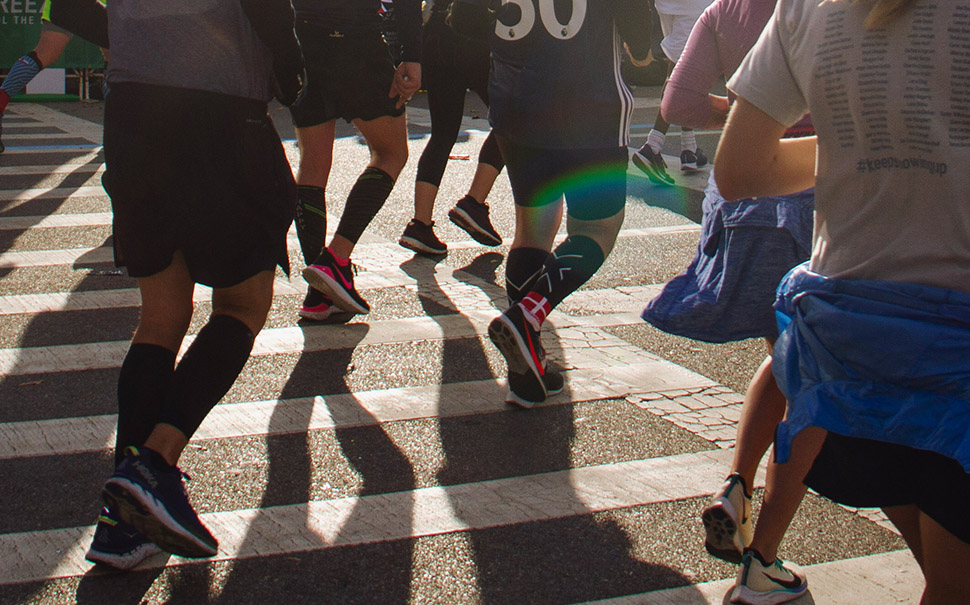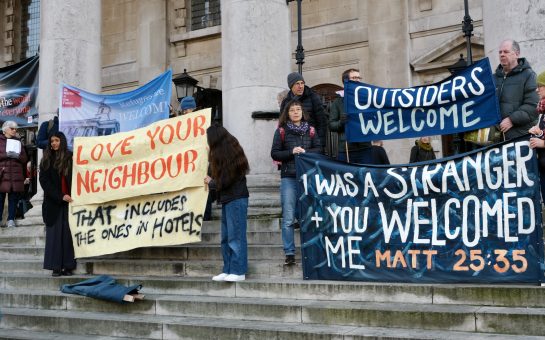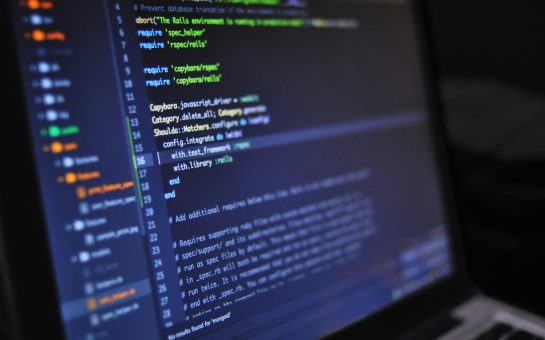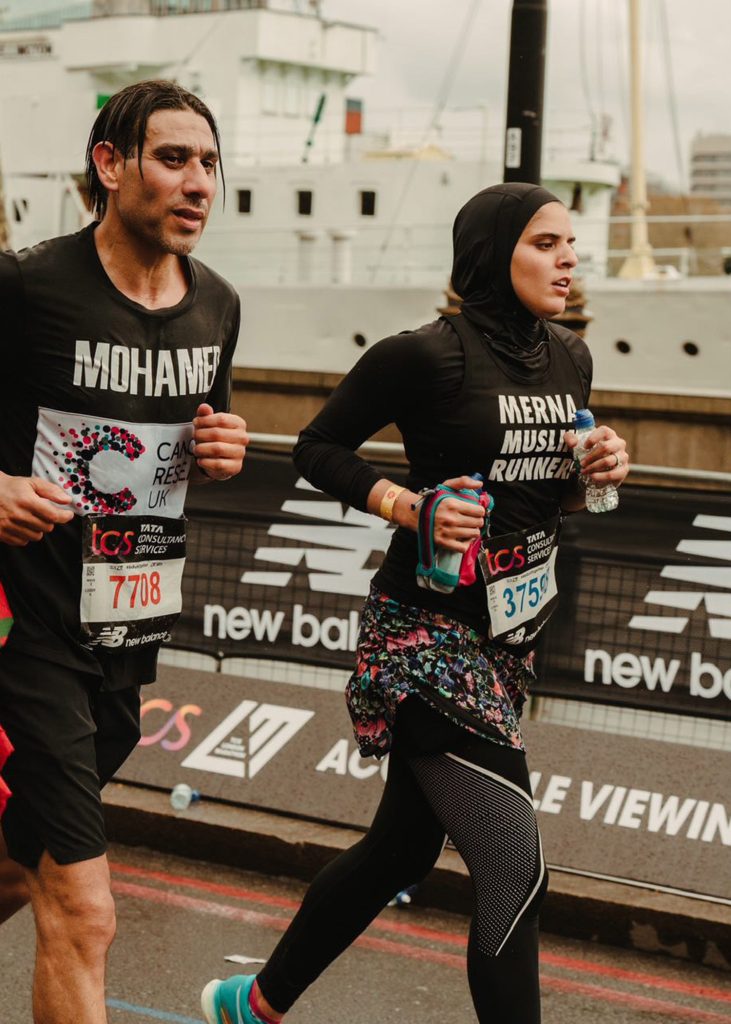
When Nashville resident Merna El-Rifai, 28, began the London Marathon last year, she was already fighting jet lag and a tight calf before she even reached the starting line. She’d been training for the race while fasting during Ramadan, which had ended just two days before, but she wasn’t overly concerned as she’d run several marathons before.
At some point during the race, though, she felt the toll of fasting on her body. Her legs started feeling tired, and her body began rejecting water intake. Every time she sipped water, her body would instinctively spit it out.
“My body was not used to fuelling mid-run,” Merna said. There were times she felt like throwing up during the race, although she didn’t.
“This was the most physically tough marathon for me,” she said. “I felt like I was just barely hanging on.”
Running a marathon is tough enough for anyone, but it’s even tougher for those who train without food or water.
As Merna clocked in more miles, she gave herself small pep talks and tuned in to her body. She took smaller sips of water. She heard the crowds cheering her name. She took in the energy of the day. She continued to put one foot in front of the other.
Not only did she reach the finish line – she also achieved a personal best.
Training Through Ramadan
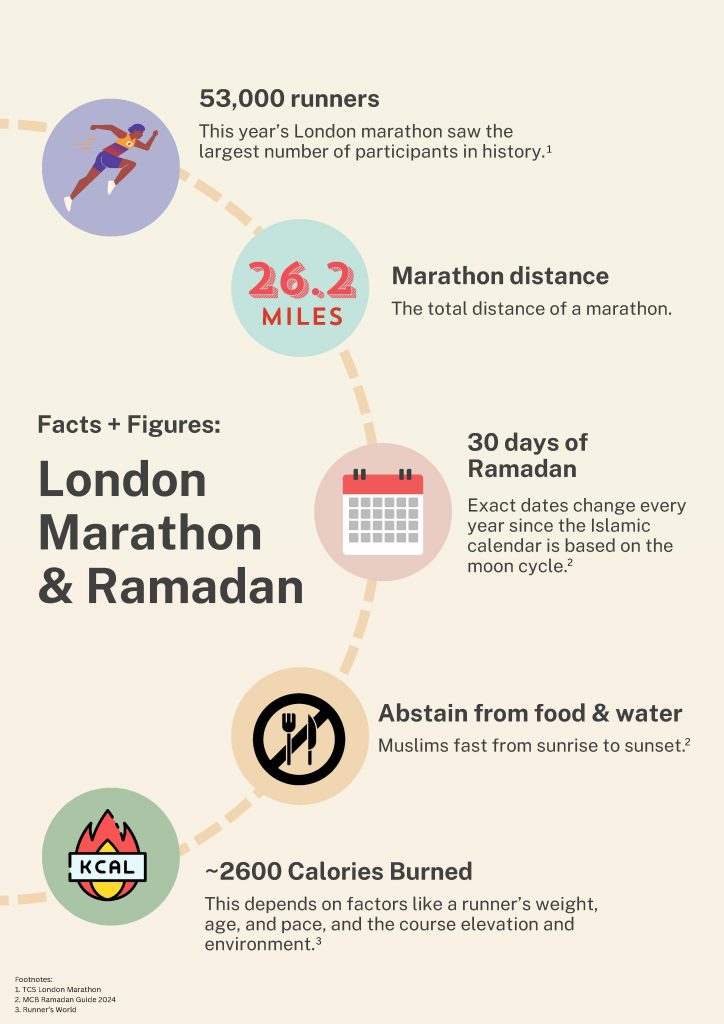
Unlike most marathons, the London Marathon always falls after the end of Ramadan, the holiest month of the Islamic calendar and one of the five pillars of the Islamic faith. During Ramadan, Muslims must abstain from eating and drinking from sunrise to sunset and increase their spiritual devotional acts. This year, the marathon—on April 21— was a generous ten days after Ramadan. Still, it is soon enough that it takes a toll.
“Just because it’s Ramadan doesn’t mean I have to stop my training,” said Mubarak Shiekh, 37, from Leicester. He ran his fourth London Marathon this year, having completed the Boston Marathon a week earlier. “But I dialled the pace back down during training.”
Mubarak is a community lead at the Muslim Runners group, part of the Active Inclusion Network, founded in 2020 by Haroon Mota, a 10-time London Marathoner. The network promotes inclusivity and diversity outdoors through other groups like Muslim Hikers and Muslim Cyclists.
The Muslim Runners WhatsApp group has over 300 members worldwide and organises park runs, typically involving a 5km run followed by coffee or breakfast. “Everybody’s welcome,” said Mubarak. “You don’t need to be based in Leicester or to be Muslim to join.”
He encouraged runners to take a practical and flexible approach to training. “It’s about being sensible to training,” he said. “During Ramadan, we’re sleep deprived, our energy levels are very low, we’re eating one meal a day, so now is not the time to go out there and get personal bests.
“I’ve been running for seven years, and I’ve run throughout Ramadan every single year. It’s never hindered me – but I take it slow.”
There isn’t a one-size-fits-all training plan. “In our virtual calls, we always tell our runners: do what works best for you and tailor your training according to that,” said Mubarak. “If you feel like you can’t do the distance that day, then don’t pressure yourself. It’s absolutely fine.”
Some people in the Muslim Runners group used the month of Ramadan as their taper and cut down their mileage, while others were running 18 to 20 miles. Some preferred to do it after breaking their fast, and others ran at midnight.

Mubarak would run before sundown – knowing he could break his fast straight after.
Merna used the time leading up to Ramadan as a trial period to practice a few miles while fasting. The low-pressure environment she created for herself helped boost her confidence. Then, a week before Ramadan, she ran her highest mileage and treated the following month as her taper.
However, not all training goes according to plan. Marathon training is intense, even without other commitments like fasting. Some group members had to defer their entry to the following year. During Merna’s training, she experienced issues with her Achilles heel. She described it as a weird, clicking sensation that wasn’t painful. Her physical therapist told her there was nothing wrong, but it was dry from dehydration.
Running goes beyond physical stamina; it’s also about keeping the right mindset, especially for runners who feel underrepresented.
That is why the London Marathon allocated 100 slots for Muslim Runners as part of an initiative to champion more diversity in running. The slots guarantee participants entry without joining the ballot or raising funds for charity. Out of the 100 Muslim Runners, 60-70 were first-timers, and 50 were women.
Marathon Day
For Merna, it’s not just about physical stamina but mental endurance. At the starting line in Greenwich Park, putting everything behind and focusing instead on the marathon and feeling good is essential. “Don’t let that self-doubt creep in,” she said. “I feel like during Ramadan, people freak out that their training is not going perfectly, or they didn’t do as much as they wish. I’d say don’t worry about that. Trust your training, trust your body, and trust that you’re ready.”
“One of the most important things is to pace yourself,” said Mubarak. “Don’t go faster than what you’ve trained for in the first couple of miles.”
While runners are focused on their time and personal bests, Mubarak also encouraged them to take it all in. “I know a lot of people get very time-driven. Just enjoy it out there!”
One of Mubarak’s favourite things in the marathon is the camaraderie among runners and spectators. For him, there is no competitiveness out there. “It’s this connected, friendly spirit,” he said. “Strangers who you’re running alongside with, they’ll come and say, ‘Come on, let’s go. Let’s do it!’”
Despite her struggles during the 2023 marathon, Merna said the city’s energy was amazing. “People were so supportive and intentional with their support,” she said. “They would call my name out and make eye contact.”
During the halfway mark of her run, Merna heard another Muslim runner greet her with, “Eid Mubarak.” Even though they were both strangers, they ran nearly the rest of the race together. “It felt like teamwork,” she said. “It was awesome.” They would sometimes get each other water and encourage one another to keep going.
But by the final mile, he cramped up and told her to keep going without him. (“Honestly, if I had stopped, I don’t know how I would have gotten my body to start again,” she admitted.) So Merna carried on and made it through the finish line at Buckingham Palace – and her running partner made it two minutes later.
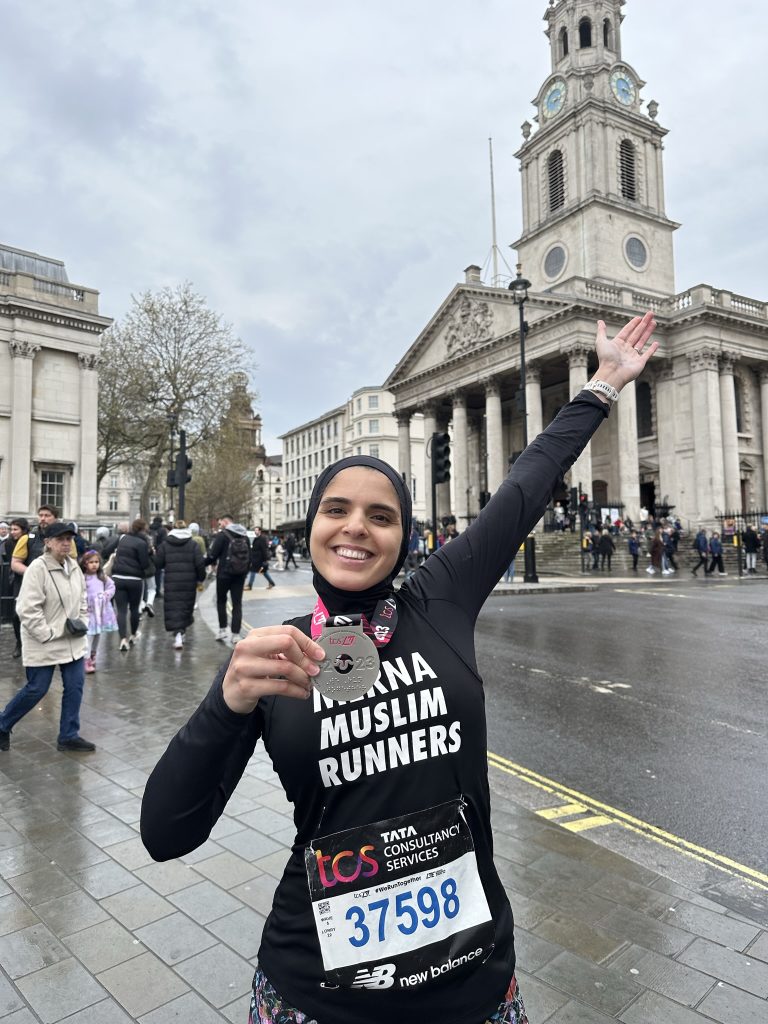
Photo credit: Merna El-Rifai
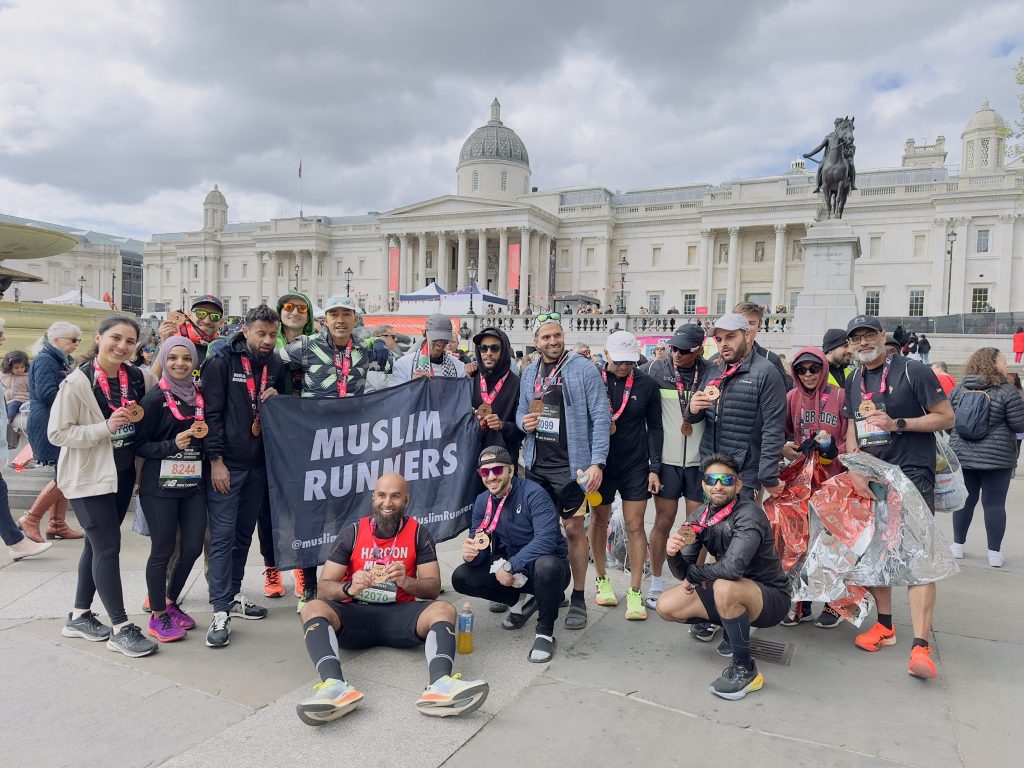
Photo credit: Mubarak Shiekh
Taking the Next Steps
For some Muslim runners, running goes beyond pushing through long distances and adjusting training schedules to accommodate Ramadan duties. Sometimes, starting can be the biggest hurdle, especially in a sport where they don’t feel represented.
“I’ve never had a role model growing up to see that – ‘Wow, this person does endurance sports, and I want to aspire to be like that,’” reflected Mubarak, who added that he also wants to change the mindset of diversity and health in the South Asian community.
When he started running, he felt the need to justify why he was doing it since physical activity wasn’t part of his community. “It’s hard because sometimes you’ve got to be quite thick-skinned to those kinds of comments, but I don’t let that hinder me,” he said. “I’ll just carry on doing what I have to do, being involved with park runs and the [Muslim Runners] community.” He uses those comments to start the conversation about the importance of looking after one’s health.
Growing up, Merna did sports as a young child but said she stopped when she started wearing the headscarf because she didn’t see anyone who could be an example to her. When she got into running at college, she usually ran on the treadmill because she was nervous about running outside. It wasn’t until her friend, who also did sports while wearing a headscarf, encouraged her that Merna started to run outside.
This is where the importance of having a community helps: to not only run together but also empower each other. Whether it’s 5k community runs or assigned marathon slots, having a sense of belonging and representation makes running more accessible to them.
“Regardless, people will always say something, but it’s about having a very focused and positive mindset,” said Mubarak. “And just carry on doing what you have to do. What I do is my passion; it’s my therapy. I love running and giving back to the community, and I love seeing their journeys as well.
“There’s still work that needs to be done, but the narrative is changing now.”
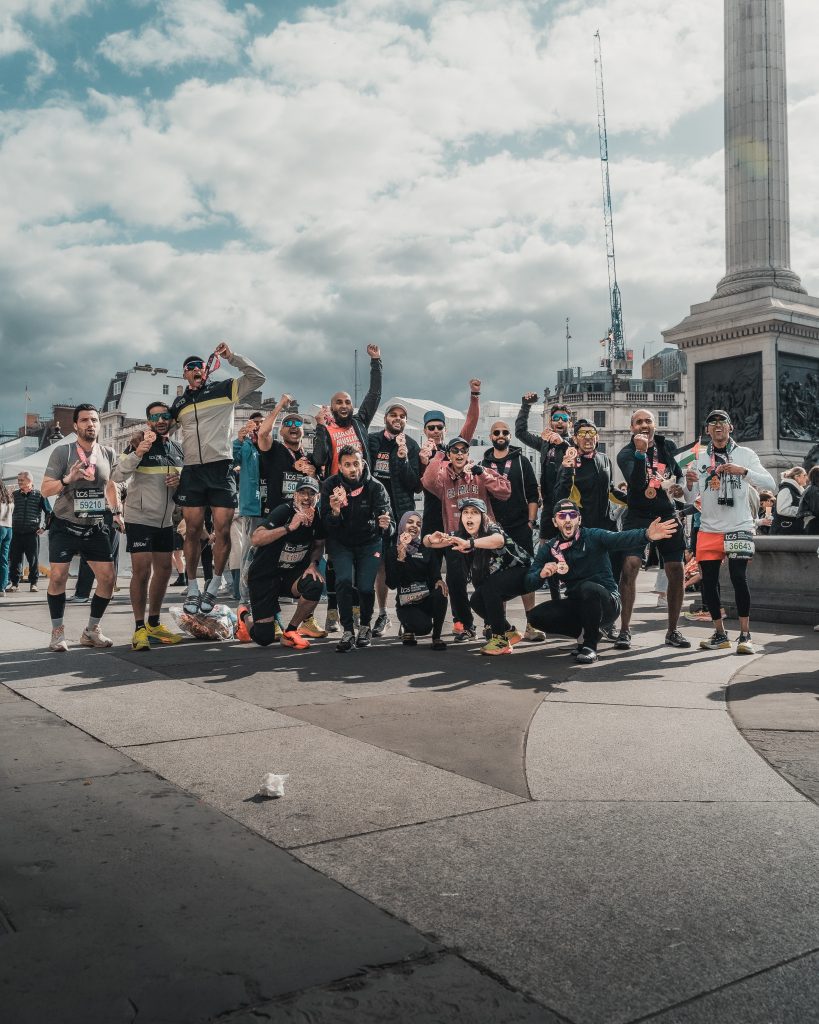
Featured image by Ysabel Cacho
